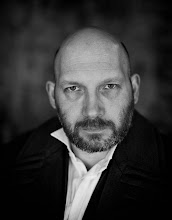 The Curse of Frankenstein (1957). Directed by Terence Fisher. Starring Peter Cushing. Christopher Lee. Hazel Court
The Curse of Frankenstein (1957). Directed by Terence Fisher. Starring Peter Cushing. Christopher Lee. Hazel CourtThere is an argument to be made (and Brian Aldiss made it better than I ever could) that Mary Shelley’s 1818 novel is the wellspring from which SF came – science challenging nature, man challenging the Creator and hubris clobbered by nemesis.
Although all these themes are present and correct in Hammer Film’s 1957 production, and while Jimmy Sangster’s lean and efficient script retains the basic premise of the novel, The Curse of Frankenstein is more in the tradition of Grand Guignol than of deep philosophy on the nature of creation.
Here Peter Cushing plays the eponymous Baron with an icy and at times downright chilling charm: a man prepared not only to rob graves to provide the raw material for his experiments but more than willing to stoop to murder to provide the perfect brain for his creation. And what a creation it is. Although Christopher Lee’s Creature doesn’t make and appearance until nearly half way through the film the first sight of him – corpse white with a hideously scarred face – still has a resonant power over fifty years later.
Unlike Karloff’s incarnation, Lee’s creature is a brutish puppet - the product of crude surgery rather than the European Expressionism of James Whale’s 1931 version of the story – and yet his near silent performance still manages to create a real sense of pathos.
Directed in rich Eastmancolor by Terence Fisher (one of the great unsung directors of British cinema) The Curse of Frankenstein has aged remarkably well – Fisher’s camera dwells unflinchingly on what are (for the time) remarkably shocking and graphic images and Cushing’s central performance raised the bar for all subsequent incarnations of the Baron, causually wiping blood on his lapels or showing off a pair of recently acquired severed hands with all the glee of an insane butterfly collector.
A landmark of British cinema, The Curse of Frankenstein established Hammer as an international force to be reckoned with and proved remarkably influential, with directors as diverse as Mario Bava, Roger Corman and, more recently, Tim Burton, all creating films that all have that distinctive Hammer look and feel.
Hammer would go on to produce many horror films over the next twenty years or so until their decline and eventual extinction in the 1970’s, but The Curse of Frankenstein remains one of their finest achievements – a triumph of both style and substance.


A great film and a great review, cheers x
ReplyDelete